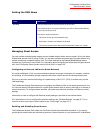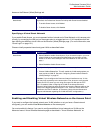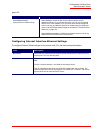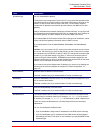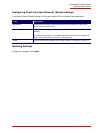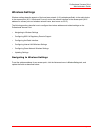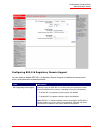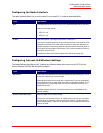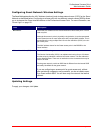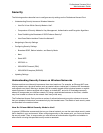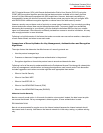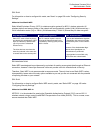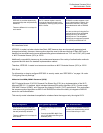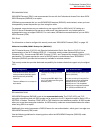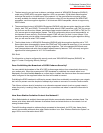
Professional Access Point
Administrator Guide
Wireless Settings - 99
Configuring the Radio Interface
The radio interface allows you to set the radio Channel and 802.11 mode as described below.
Configuring Internal LAN Wireless Settings
The Internal Settings describe the MAC Address and Network Name (also known as the SSID) for the
internal Wireless LAN (WLAN) as described below.
Field Description
Mode The Mode defines the Physical Layer (PHY) standard being used by the radio.
Select one of these modes:
• IEEE 802.11b
• IEEE 802.11g
Channel Select the Channel. The range of channels is 1 through 11.
The Channel defines the portion of the radio spectrum the radio uses for trans-
mitting and receiving. Each mode offers a number of channels, depending on
how the spectrum is licensed by national and transnational authorities such as
the Federal Communications Commission (FCC) or the International Telecom-
munication Union (ITU-R).
The default is Auto, which picks the least busy channel at startup time.
Field Description
MAC Address Shows the MAC address for the Internal interface for this access point. This is
a read-only field that you cannot change.
Although this access point is physically a single device, it can be represented
on the network as two or more nodes each with a unique MAC Address. This is
accomplished by using multiple Basic Service Set Identifiers (BSSIDs) for a
single access point.
The MAC address shown for the Internal access point is the BSSID for the
Internal interface.
Wireless Network Name (SSID) Enter the SSID for the internal WLAN.
The Service Set Identifier (SSID) is an alphanumeric string of up to 32 charac-
ters that uniquely identifies a wireless local area network. It is also referred to
as the Network Name. There are no restrictions on the characters that may be
used in an SSID.



